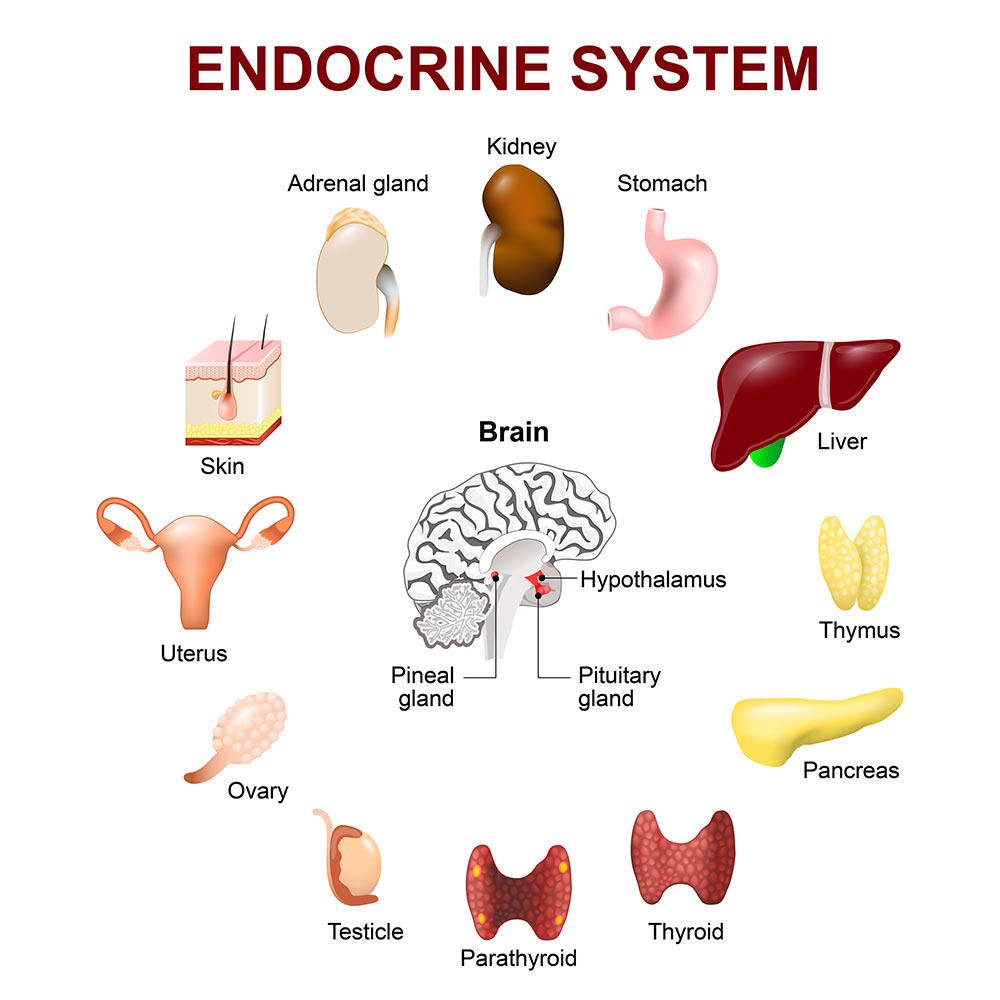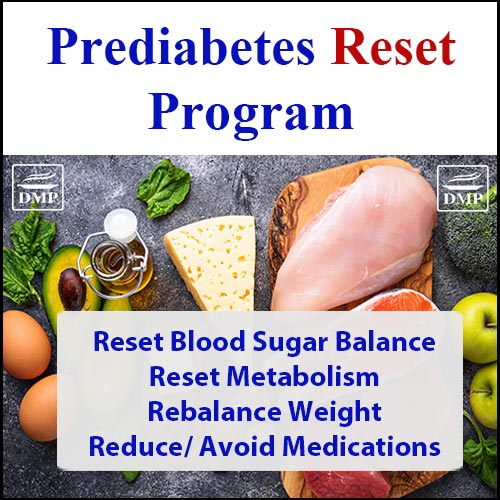With type 2 diabetes and prediabetes waking up to high morning glucose levels can be a bit of a confusion. After all, you haven’t eaten anything all night, so why are they so high?
We’re going to look closer at that, along with factors that can contribute to higher levels. And we’ll share some natural ways you can lower morning levels too.

Why Is Morning Glucose Level Higher?
Morning glucose levels rise due to a phenomenon known as the dawn effect.
The dawn effect refers to the natural rise in blood glucose levels during the early morning hours. This occurs as a result of hormones like cortisol and growth hormone.
Cortisol, often called the “stress hormone,” is released by the adrenal glands in response to stress or during specific times of the day, such as in the early morning hours. Cortisol has a counter-regulatory effect on insulin, meaning that it works against the action of insulin. When cortisol levels are high, insulin resistance increases, making it more challenging for insulin to escort glucose into cells. As a result, glucose remains in the bloodstream, leading to higher blood sugar levels.
Growth hormone is secreted by the pituitary gland and plays a vital role in growth and development, as well as in the regulation of various metabolic processes. Growth hormone also has a counter-regulatory effect on insulin and can increase insulin resistance when its levels are elevated. This hormone stimulates the liver to produce more glucose, which is released into the bloodstream, contributing to elevated blood glucose levels.

The body can usually compensate for these counter-regulatory hormones by producing more insulin to maintain normal blood sugar levels. However, in people with type 2 diabetes or prediabetes, the pancreas may not produce enough insulin or (more commonly) the body’s cells may not respond well to the insulin that is available (insulin resistance).
This inability to compensate effectively for the increased insulin resistance caused by cortisol and growth hormone leads to elevated morning glucose levels, commonly known as the dawn phenomenon or dawn effect.
Factors That May Heighten Morning Glucose
Here are some factors that might heighten your morning glucose levels:
- Poor blood sugar or HbA1c control: Lots of people focus only on their fasting (morning) levels, but it’s only one number. If your blood sugar or HbA1c are not in the normal range, you should focus on bringing them down to normal and your morning levels will follow. This is particularly true for your after-meal (postprandial) levels.
- Consuming high-carbohydrate foods at dinner or bedtime: Eating high-carbohydrate meals can lead to elevated blood sugar levels, at any time of day. But, if you indulge in a carb-heavy dinner or snack before bedtime, you may find your glucose levels are higher than usual in the morning.
- Lack of physical activity: Regular physical activity is crucial for improving type 2 diabetes and prediabetes health and in maintaining healthy blood sugar levels. If you’re not getting enough exercise, your body may struggle to use insulin effectively, causing your glucose levels to rise. This leads to higher morning levels too.
- Stress and illness: Both physical and emotional stress can impact your glucose levels. When you’re stressed or sick, your body releases hormones that can cause your blood sugar to spike. If you’re consistently dealing with stress or are recovering from an illness, it may be contributing to your high morning glucose levels.
Natural Strategies to Lower Morning Glucose Levels
A few easy tips are to:
- Acheive and maintain healthy blood sugar levels: this is number one priority. If you need help doing that, consider joining us as a member.
- Choose lower carb foods at dinner: A meal high in protein, healthy fats and an abundance of non starchy vegetables will keep things balanced.
- Prioritise physical activity: Engage in regular exercise to help improve insulin sensitivity and regulate blood sugar levels. Aim for at least 150 minutes of moderate-intensity aerobic activity each week. That’s about 30 minutes 5 days of the week. Adding in strength training twice a week will boost your insulin sensitivity even more.
- Manage stress and monitor your health: Practice stress-reducing techniques, such as meditation or deep-breathing exercises, and be aware of how your body responds to illness. If you’re feeling unwell, work closely with your healthcare professional to adjust your diabetes management plan as needed.
Beyond these strategies there are several therapeutic strategies that may help:
One small study found that having 2 tablespoons of apple cider vinegar with 28 g cheese (which is just 1 slice cheese) before bed may help reduce morning glucose by 4% to 6%.

Cinnamon
The average results from two months of cinnamon supplementation at about 3g/day was a reduction in fasting blood glucose by 0.66 mmol/l.
Polyphenols in cinnamon provide many benefits such as enhancing insulin signalling, improving glucose transport into cells, and reducing insulin resistance.
Chromium
A review of chromium supplementation found that fasting blood glucose can be reduced by 0.5 mmol/l to 1.72 mmol/l.
Researchers suggest this is due to enhancement of insulin action.
Garlic
Taking approximately 300 mg of garlic powder for 8-24 weeks has been shown to reduce fasting blood glucose by approximately 2 mmol/l.
Researchers suggest garlic helps enhance insulin sensitivity, exerts insulin-like activity, enhances pancreatic beta cell function, and inhibits carbohydrate metabolism.
L-Carnosine
L-carnosine 1000 mg per day for 12 weeks showed a 0.7 mmol/l reduction in fasting blood glucose levels.
L-carnosine is naturally found in muscle tissue and when taken as a supplement helps modify glucose metabolism, provides antioxidant, protects against glycation and reduces inflammation.
Aloe Vera
A review of aloe vera found a reduction in fasting glucose levels by 2.6 mmol/l. Aloe vera was either taken by supplement 50-300 mg per day, or juice 15 – 30 mL.
Although the exact mechanisms are unclear, proposed mechanisms include the expression of the genes related to glucose metabolism and reduced insulin resistance. Aloe vera contains over 75 active components, some of which are trace elements of chromium, magnesium, manganese, and zinc that are important in the metabolism of glucose.
Berberine
The effects of berberine on fasting blood sugar levels is very impressive. When people with type 2 diabetes were given 500 mg of berberine per day, 3 times per day, for 13 weeks, fasting blood glucose reduced by 3.78 mmol/l.
Berberine has many potent glucose-lowering properties.
Many of the above supplements have also been shown to control blood sugar overall, along with lowering HbA1c, as well as providing several other benefits.
The best rule of thumb here is: do not to go out and take every single supplement, but try taking one supplement for a time and see if it exerts any benefits for you. If not, you can try exchanging it for another one to evaluate its effects.
**Always be aware that any blood sugar lowering supplements can potentially cause low blood sugar (hypoglycaemia), particularly if you are taking insulin. You should always seek medical advice before supplementing, especially if taking medications.
Conclusion
Understanding the factors that contribute to high morning glucose levels can give you some relief that it is actually a normal thing.
By making adjustments to your eating habits, lifestyle, and stress management, you can better control your blood sugar and HbA1c levels, which will start you on the right foot with normalising morning levels.
You can also try adding natural therapeutics such as berberine, aloe vera or others to see if they provide additional benefits.
**Get access to a huge library of quality evidence-based info like this, become a member today. Our scientifically-proven guidelines can help you achieve lower blood sugar and A1c, weight loss, and reduce or stop medications.


